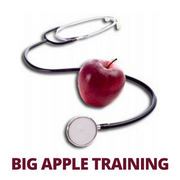
Just as the baby boomer generation impacted the economy, they are also responsible for the growing need for certified nursing assistants (CNA). Born between 1946 and 1964, this generation represents nearly 20% of the American population and, as they retire, these individuals will require properly trained medical and care staff. Below is some insight into what CNAs do and why the demand for the position is growing.
What Is a CNA?
Certified nursing assistants, or CNAs, are health care professionals who assist patients under the supervision of either a registered nurse (RN) or licensed practical nurse (LPN). Typically, certification programs are state-regulated, with each area setting their own code of ethics and expectations. In New York, for instance, candidates participate in a nursing assistant training program authorized by the state. They must then pass the New York State Nursing Home Nurse Aide Competency Examination, which consists of a skills and knowledge test, to receive their certification. Every two years, CNA staff must continue their education to stay current and renew certifications.
 CNA staff can find employment in a variety of locations such as nursing homes, adult day care, hospitals, senior living facilities, or even in private homes. They are critical for keeping nurses and patients in communication and will perform certain tasks like taking blood pressure and heart rate, helping with mobility, feeding, and keeping up with personal hygiene. They are an extra set of hands during procedures and first aid situations due to their extensive training and certifications in care. These positions are also great for professionals to move to RN or LPN status later in their careers.
CNA staff can find employment in a variety of locations such as nursing homes, adult day care, hospitals, senior living facilities, or even in private homes. They are critical for keeping nurses and patients in communication and will perform certain tasks like taking blood pressure and heart rate, helping with mobility, feeding, and keeping up with personal hygiene. They are an extra set of hands during procedures and first aid situations due to their extensive training and certifications in care. These positions are also great for professionals to move to RN or LPN status later in their careers.
The Baby Boomer Effect
Because of the size of the baby boomer generation, there is a rising demand for CNA and other medical professionals to care for them as they age. This generation is known for their diligence and good work ethic; as they retire they want to maintain their quality of life—and these trained professionals help them achieve that.
Besides making up almost 20% of the American public, this particular group also statistically has more discretionary income than other generations before and after it, meaning they are financially sound enough to afford the care they need in their twilight years. They also have a higher life expectancy than previous generations and are investing in their well-being. Every day, 10,000 members of this group hit 65 years of age, redefining senior care and retirement and causing the industry to be at its largest in many years.
If you are considering a career as a CNA, turn to Big Apple Training. With centers in the Bronx and White Plains, NY, they have over two decades of experience and offer quality medical training to secure successful careers in the health care industry for their students. Start today by calling (914) 437-7373 to speak with a helpful representative. You can also visit them online to learn more about their programs and facility.
About the Business
Have a question? Ask the experts!
Send your question

